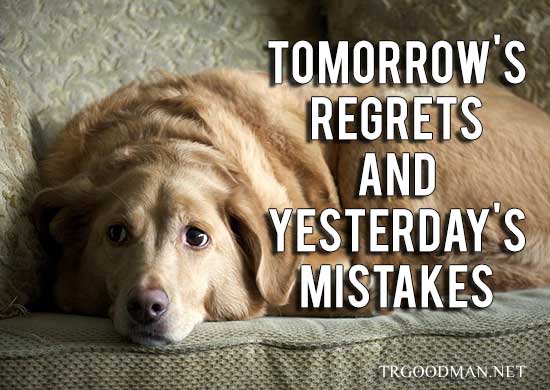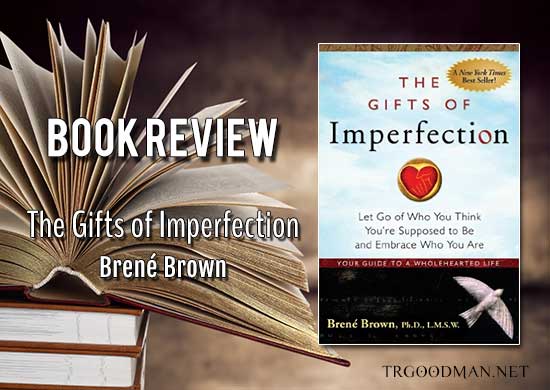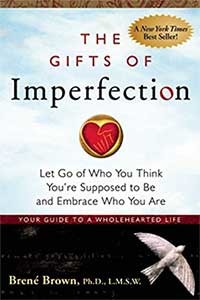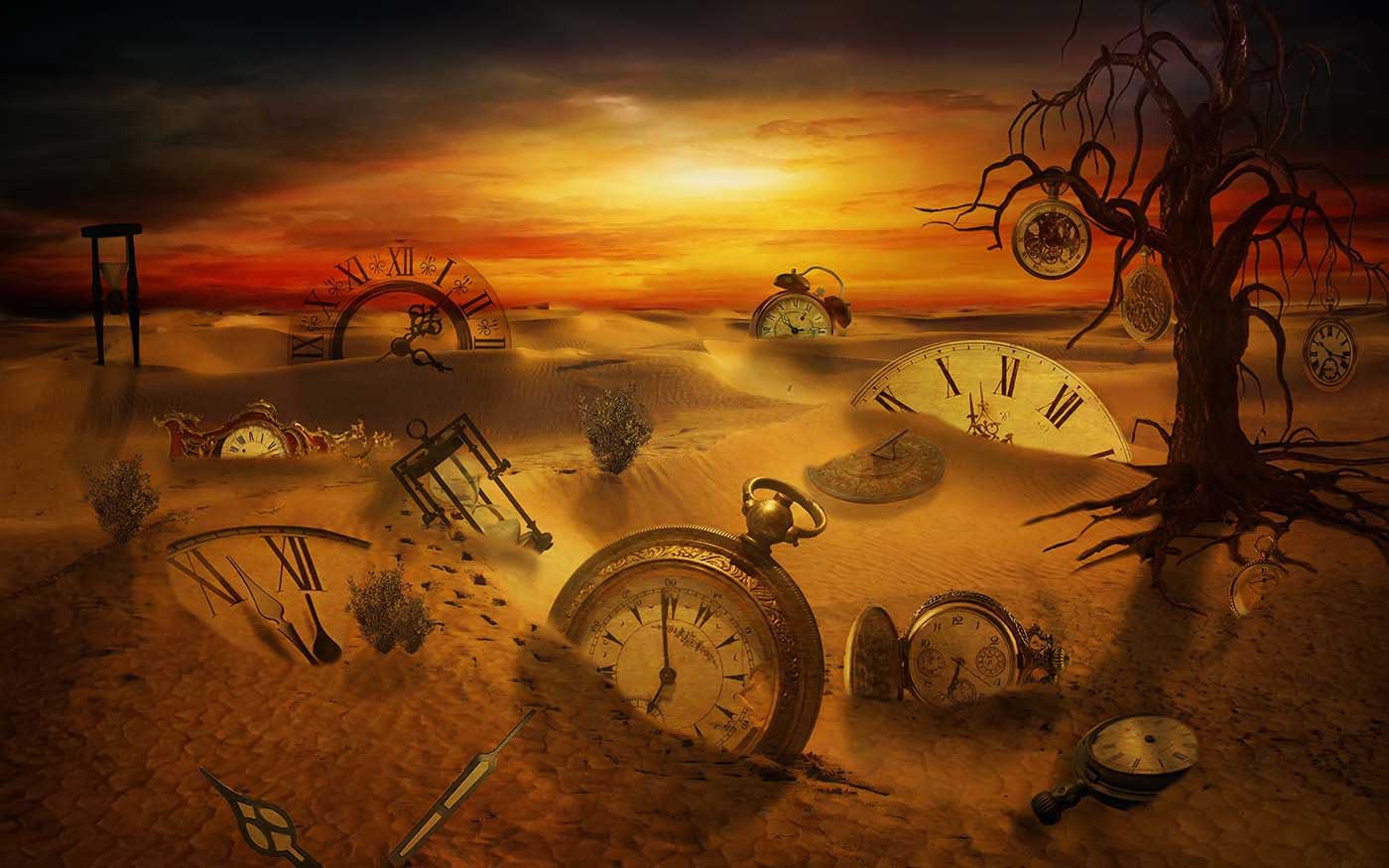Tomorrow’s Regrets and Yesterday’s Mistakes
This morning, a co-worker informed me that his sister, who has been fighting cancer for some time, has only a month left to live. Possibly three if all goes well with her chemo. The cancer, which began in her lungs, has spread throughout her body and taken up prominent residence in her brain, where it’s set up shop, picked out china patterns, and redone the wallpaper.
It’s a terrible thing, fighting a losing battle, but it’s not the cancer I’m referring to. It’s the reflection on everything that came before. The regrets. The life that should have been, but somehow never manifested while there was still time.
Yeah, I know this isn’t my usual light-hearted fare, stuffed with Ninja Turtle references, dry humor, and a dollop of sarcasm, but stick with me. I’ll try to make it worth your while.
The Life That Should Have Been
When facing the end of a journey, any journey, you can’t help but look back on it and reflect. Sure, there are good memories. A good meal, an evening with friends, a smile from a pretty girl that you’re mostly sure wasn’t patronizing. But we don’t focus on those things. They’re still there and we can remember them when we make the effort, but they’re not the focus.
Instead, too many people look back and see only the missed opportunities, the mistakes, the things they should have done now that they’re older, hopefully a bit wiser, and have a few more XPs than they did when they started out.
I mean, who hasn’t done something stupid like attacking the darkness and wasting their magic missile spell on a joke, then ended up with a one-way ticket through the digestive system of a storm dragon. Am I right?
The advertising executive looks back and wonders what happened to his dream to be a rock star. The rock star ponders whether his life would have been better if he’d been a doctor like his mother wanted. The doctor, unable to heal himself, dreams of a life where he’d gone into advertising and wrote jingles and got to say with no irony whatsoever, But wait, there’s more!
<EltonJohn>It’s the circle of should, and it moves us all…</EltonJohn>
Why Do We Wait So Long?
So, if we look back and see so prominently all the things we should have done, all the risks we should have taken, all the opportunities we let slip through our fingers, why didn’t we just grab them in the first place?
I think fear plays a big role. We want to be safe. We want to be taken care of. We don’t want to risk what we have in the hopes of finding something more. A job in a cubicle listening to your neighbor complain about his lost stapler is a safer and more financially-stable choice than starting your own business or playing music at a club on weekends for tips and free drinks (no more than two; be responsible, kids).
Not only that, but we want to belong. We don’t want to stand out. That sort of acceptance and peer pressure can be a powerful motivator to act or not to act (but what is the question?). Facing that disappointment and resistance can be every bit as much of an obstacle as the Black Gate. The best we dare to hope for is to see an oliphaunt on the way.
Regrets, Rain Checks, and Roller Skates
In my own life, I have a number of regrets, long-lost dreams, and shoulds have have fallen to the wayside. When I was young, I wanted to be a writer. I loved reading and stories and writing my own. There were even a few times when I won some acknowledgment or other.
But things changed. That dream fell away to new interests, new obsessions. It’s only in recent years that I have circled around and rediscovered writing. I only wish I’d done it sooner.
But even now, I still find plenty of excuses reasons why I can’t write. One day I feel I have nothing to say, the next I’m too tired after dealing with a schizophrenic (literally; not making this up) walk-in at work, or maybe there just wasn’t enough time.
In any event, it was a rain check. I’d get back to it later.
Next month will be the third anniversary of the publication of My Name Is Michael Bishop. I’ve written a few stories and novellas since then, but nothing substantial. No novels, no forward progress. Eleventy-hundred writing and business books later, and my velocity zero.
This is normally the part where I say something inspiring. hold aloft my magic sword and say, By the power of Greyskull! I make a stand, promise to never do it again, and to attack my goal with such laser-focus that all of space and time will bow to my demands.
Yeah, that’s not going to happen, but it doesn’t mean that we can’t make some small changes that hopefully will add up to a result.
A Brand New Day
Here is my seven point plan for guaranteed success likely modest improvement:
- Figure Out What I Want – Obviously, you can’t figure out where you’re going until you have a destination. Mine is to be a career writer. Moving on!
- Every Day, Take One Step – Momentum is the hardest thing to build up when you try something new, whether it’s exercising, building a new habit, starting a career, or launching a rocket into space. But the thing about momentum is that once you get started, it gets easier and easier to keep going. Every day, at least one step toward a goal. Even if you never pick up speed, you’ll get there in time.
- Watch For Opportunities – On a recent podcast, the guest mentioned that she always found money when she went for a walk, but only when she was actively looking for it. It would make sense to be on the lookout for any such career opportunities. When one comes along, all you have to do is grab it, shake it around a bit, and gnaw on it in the sun until you get to the marrow.
- Treat (Almost) Every Decision As A Possible Regret – Today’s mistake is tomorrow’s regret, so sayeth somebody (I hope I’m the first to come up with it). Each decision presents a fork in the road, and unless it’s an episode of Sliders, you only get to experience one. Hasty, panicked decisions are the express pass to regret, so I’m going to make an effort to be more deliberate in my decision-making.
- Be Present – I don’t mean wrapping myself up in paper and putting a bow on my head (though J may threaten to do it to me to be silly); what I mean is making an effort to not just coast through the day, waiting until I get through the things I have to do so I can get to the “good stuff.”
- Never Give Up – When I launched My Name Is Michael Bishop, I had all sorts of unrealistic expectations about becoming a famous writer and selling tens of copies. That didn’t happen, and the disappointment put me off writing for a while. Now I know that this business, like so many others, is a long, hard battle up a steep hill while people throw rocks and insults. You only lose if you stop moving.
- Number Seven – There is no number seven. Not even behind the curtain.
Regret has always been a part of life and will always be, especially when we approach the end of it. We (hopefully) still have a long way to go before we reach that point. While we may not become Brandon Sanderson or Charles Dickens or any of a thousand potential heroes along the way, as long as we push ourselves, look for opportunities, and try to leave the world a little better than it was when we found it, our lives had meaning, and nothing will be able to change that.
Wow, that was heavy. So, what do you think? Do you approach each day as an opportunity, and what do you plan to do to improve your lot? Leave a note in the comments below, and remember to share this post with your friends. Thanks for reading!




